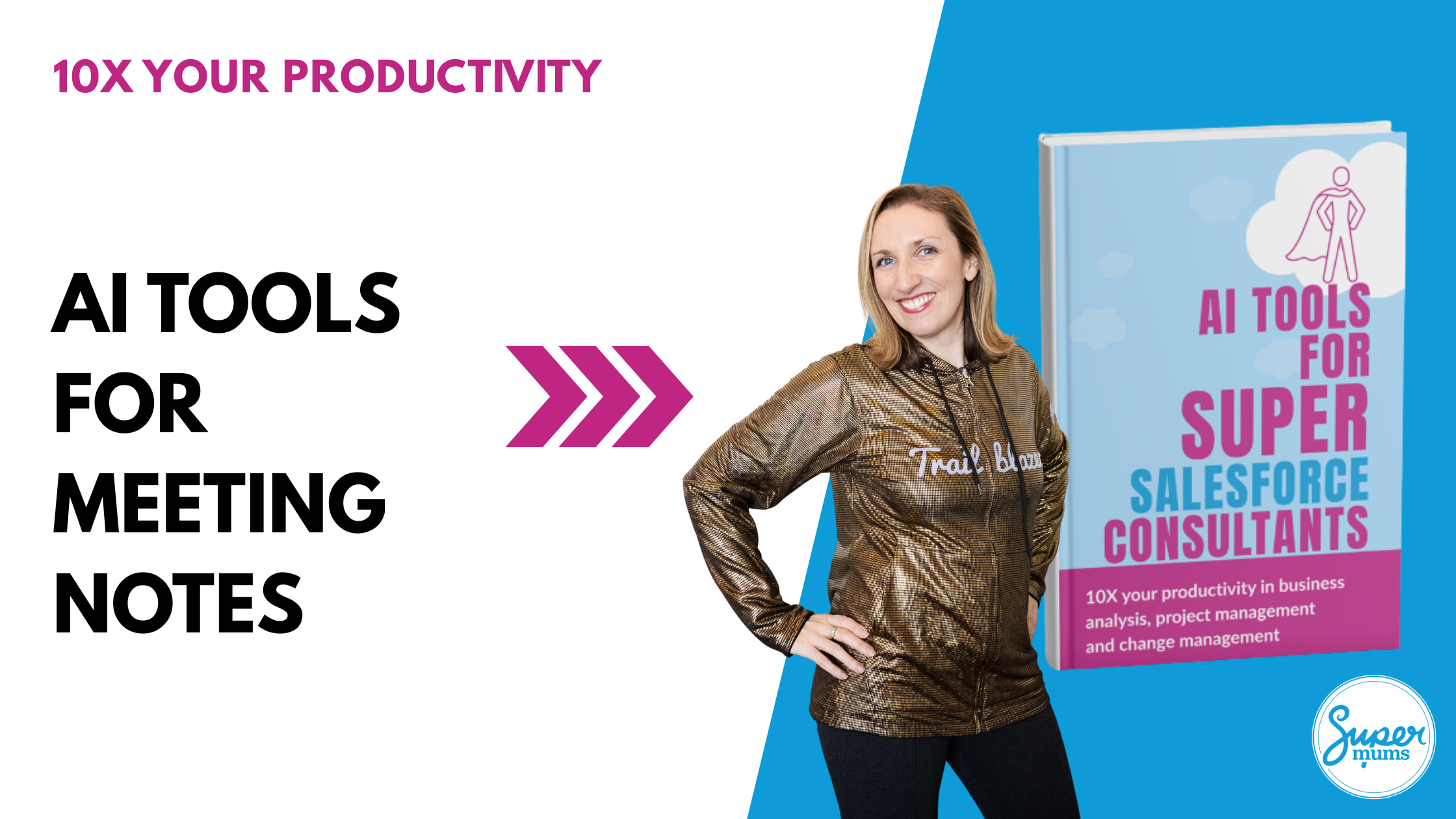Introduction to DevOps for Salesforce Administrators
By Heather Black

DevOps, a combination of development (Dev) and operations (Ops), is the industry gold standard for how companies manage their Salesforce processes. It’s an Agile way of working that empowers all Salesforce professionals to contribute to the development and release cycle, whatever their technical skills or role.
In our new book, “Become a Super Salesforce Administrator”, we talk about the four key roles every admin plays: the Problem Solver, the Innovator, the Data Champion, and the Change Agent.
When you are making changes in a live org, it’s best to introduce a DevOps in your development and release cycle.
Within this blog we give Salesforce Administrators an introduction to DevOps and how to get started!
Join our VIP Book Waiting List and download a FREE ACTION PLAN which summarises the 4 roles and 25 tasks including DevOps.
What is DevOps
Among its core objectives, DevOps aims to:
- Improve collaboration between admins, developers and business stakeholders
- Speed up deployments and testing along an automated release pipeline
- Enhance the quality and reliability of new features and functionality
- Increase the frequency of releases to production
- Build resilience with full visibility into changes, including options for rollback and disaster recovery
DevOps brings significant benefits to businesses, helping them to get the most out of their Salesforce investment. More frequent releases, for example, mean teams can respond quickly and in a flexible way to changing business needs and opportunities. By continuously delivering small improvements and iteratively building out new functionality, teams are better able to respond to business priorities while incorporating continual feedback from stakeholders.
At the heart of this process, Git-based version control gives teams a powerful way to collaborate on and coordinate a complex pipeline with multiple contributors and different streams of development and customisation. Using a DevOps platform like Gearset, each contributor can interact with version control using clicks not code, pushing changes to release and keeping all teams’ development environments in sync.
Version control also makes it possible to add automation to workflows, which dramatically reduces the huge amounts of time teams otherwise have to spend on manual and error-prone processes, such as deployments and testing. In turn, this frees up teams to spend more time adding value for their end users.
The impact of successful DevOps
As well as producing a whole host of business benefits, DevOps is also critical for avoiding costly mistakes. When the principles of DevOps are applied, Salesforce teams not only minimise the risk to their orgs but also strengthen their ability to recover from faulty deployments. Here are two real-life examples:
- Introducing a breaking change. New changes can impact Salesforce functionality like online payment processes, meaning people can’t donate or buy at a given point. This obviously has a hugely detrimental impact on sales income and the organisation as a whole. Robust testing through a DevOps workflow reduces the chance that you’ll deploy a bug to production, and version control means you can quickly revert a deployment if an issue does arise. Minimal downtime makes for a happy business and end users.
- Lost data that can’t be recovered. Data loss is a nightmare scenario — but it’s a reality that many teams face. You don’t want to be in a situation where your deployment or data import is responsible for losing business-critical data.
A mature DevOps process includes an incident detection strategy and a pre-planned recovery process, to ensure you have an easy way to restore lost data and metadata.
Who is it for?
DevOps expertise isn’t just for the specialists. Precisely because DevOps is all about collaboration, the demand for talent is there at all levels. Whether you’re seeking a new role as an admin, developer, architect or consultant, understanding core DevOps concepts, tools and workflows can get you a long way and help you to progress your career.
Opportunities for professionals with DevOps knowledge currently exist across all industries and types of company. Larger organisations and enterprises with bigger Salesforce teams and more complex processes are especially likely to need DevOps know-how and will pay a premium for that expertise.
DevOps has become the industry standard. As the Salesforce ecosystem realises the limitations and challenges of traditional org-to-org development methods, familiarity with DevOps tools is rapidly becoming essential. In fact, DevOps is now a job role in its own right, with companies hiring Salesforce DevOps specialists at an attractive salary band.
Given that DevOps can accelerate Salesforce development while also decreasing bugs and issues, it’s no surprise that organisations are so willing to invest in DevOps tools and practices, to help retain their competitive edge.
How to get right
Learning about Salesforce DevOps is a gradual process and, as with any discipline, specialist expertise requires practical experience. As a broad outline, the following are the tools, concepts and processes you will become familiar with as you make progress on your DevOps journey.
As a beginner, you will:
• Learn about development on Salesforce and modern release management
• Practise deploying different metadata types between orgs
• Back up your data and metadata
As a novice, you will:
• Get to grips with the fundamentals of version control
• Start using a Git hosting provider, eg GitHub
• Practice committing metadata to version control
As a practitioner, you will:
• Build up a repository of Salesforce metadata
• Begin treating version control as the ‘source of truth’ for development
• Explore the benefits of different Git-branching strategies
As an expert, you will:
• Automate tests, monitoring and deployment steps in the release process
• Seed sandboxes with masked production data for more robust testing
• Learn about the tools available from Salesforce DX As a luminary, you will:
• Ensure compliance with backups integrated into the release process
• Create a fast-flowing CI/CD pipeline you can visualise in one place
Advance your career with Salesforce DevOps
The rapid adoption of Salesforce DevOps by companies across all industries and sizes is opening up exciting career opportunities for both new entrants and seasoned professionals in the Salesforce jobs market. Getting ahead of the game could be a smart career move, as adding DevOps knowledge and expertise to your Salesforce skill set will set you apart from the crowd and could put you on a lucrative path.
A great place to learn all about Salesforce DevOps is on the free training platform DevOps Launchpad. Here, you’ll find industry-relevant courses and certifications for the Salesforce community, written by DevOps experts. Whether you’re new to Salesforce, or have years of experience, there are resources that cover all aspects of DevOps, including certification tracks in Salesforce DevOps fundamentals and Salesforce DevOps leadership. The courses are broken down into bite-sized learning items with short quizzes to test your knowledge, enabling you to learn at your own pace and in your own time. You can download your certificates to add to your résumé and social profiles to demonstrate your skills.
Start your DevOps Learning Journey Today
DevOps Launchpad has been developed by Gearset, but the vast majority of the content is vendor-agnostic, designed to give you a solid understanding of core DevOps concepts and best practices. If you’re a beginner, it will help you get up and running with DevOps, or if you’ve some experience it can help you improve your existing processes. Get your first DevOps Certification via Launchpad
Written By:
Subscribe To Our Weekly Top Tip Bulletin
Get Updates And Learn From The Best













